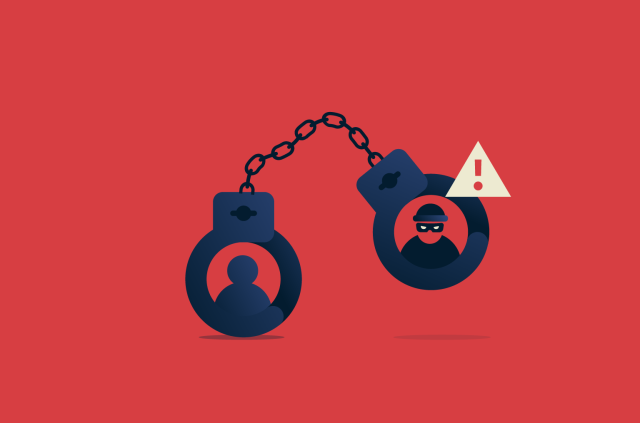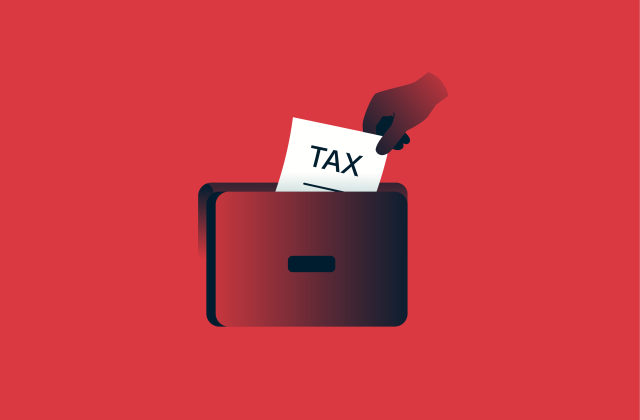Is identity theft protection worth it?

In 2024, the Federal Trade Commission received more than 1.1 million identity theft reports. Identity theft protection services claim they can help keep you safe so you don’t become part of these statistics. But how much protection do they really offer?
In this guide, we’ll break down what identity theft protection services actually do, discuss their benefits and alternatives, and help you decide whether subscribing to one makes sense for you.
Please note: This information is for general educational purposes and not financial or legal advice.
What do identity theft protection services actually do?
While the exact features vary from one identity theft protection service to another, most of them typically include the following:
Credit monitoring and alerts
Identity theft protection services can track your credit activity and alert you to unusual changes, such as newly opened accounts or unexpected lines of credit. This is particularly useful because many people don’t check their credit reports regularly, often only reviewing them when applying for a mortgage or other major credit. By monitoring your credit continuously and notifying you promptly, these services help ensure that any suspicious activity doesn’t go unnoticed.
If you’re in the U.S., ExpressVPN’s Credit Scanner shows your Experian credit score, monitors your credit, and provides alerts about changes that may affect it, helping you detect possible fraud. U.S. customers with eligible ExpressVPN subscriptions can also access a monthly credit report through Identity Defender.
Dark web and identity monitoring
Dark web monitoring scans hidden websites, forums, and data dumps for your personal information and alerts you if any leaks are found. This allows you to act quickly, changing compromised login credentials, restricting account access, or reporting the breach to the appropriate authorities.
Accessing the dark web requires specialized software, such as the Tor browser, and even then, most people don’t know where to look for potential data leaks. Regular monitoring through identity theft protection services is far more effective than occasional, manual checks you might attempt on your own.
ExpressVPN’s ID Alerts offers dark web monitoring covering over 10 unique data types (including Social Security numbers, full name, date of birth, driver’s license details, email, bank account numbers, and medical IDs). It’ll instantly alert you if any of your sensitive personally identifying information shows up on the dark web. ID Alerts is available to users in the U.S.
Identity restoration and recovery
Recovering from identity theft can be overwhelming, and many victims aren’t sure where to start or how long the process will take. Some identity theft protection services offer guidance for restoring your identity, including access to experts who can walk you through each step. This support can significantly reduce the time and stress involved in reclaiming your personal information.
Insurance and financial protection
Recovering from identity theft can be expensive, depending on the extent of the damage and any indirect costs, such as lost wages from time taken off work. Some identity theft protection services may help offset these costs by reimbursing eligible expenses.
ExpressVPN’s Identity Theft Insurance (included with eligible ExpressVPN subscriptions for U.S. customers) may provide up to $1 million in reimbursement* for certain losses due to identity theft, subject to terms and conditions.
Who needs identity theft protection the most?
Think identity theft protection isn’t for you? Check if you fall into any of the categories below first.
You have a large digital footprint
Your digital footprint consists of websites and applications (such as financial, social media, and e-commerce accounts) you’ve submitted your data to, as well as online services that collect data about you while you use them. The larger your digital footprint, the greater the chances of some of your personally identifying data leaking in a data breach.
Keeping track of activity across numerous online accounts can be difficult, especially when it comes to monitoring specifically for information that can facilitate identity theft. Fortunately, some identity theft protection services monitor your financial and social accounts, as well as other active and passive digital footprints, helping you stay on top of suspicious activity and providing stronger protection against online fraud.
You’re a senior
Many seniors retire with substantial personal wealth but often have limited tech skills and a trusting mindset, making them prime targets for identity theft and cybercrime. Common threats include tech support scams, phishing attacks, pig butchering scams, and romance scams.
Without continuous credit monitoring from identity theft protection services, seniors may not realize something is wrong until it’s too late. These services can also provide guidance and support to help them recover their identity if they ever fall victim to theft.
You don’t actively monitor your credit
Cybercriminals are banking on the fact that you’re too busy with work, family, and everything else to constantly check your credit and monitor your account reports.
Identity theft protection services help by continuously monitoring your accounts and sending instant alerts if any suspicious activity is detected.

You often do business online
Remote workers often apply to multiple roles online, which can require sharing personal information without knowing the true intentions of the person behind the job posting. Even with legitimate offers, you can’t always be sure how potential clients or employers will handle sensitive data like your Social Security number or date of birth used for background checks or other processes.
You have valuable assets
Unsurprisingly, this makes you a high-value target: cybercriminals know they could score a big payday by stealing your identity, especially since you’re likely to have substantial credit and may be too busy to monitor your accounts closely.
Your information has leaked in a data breach
Most people never visit the dark web, but that doesn’t mean their personal information isn’t there, often due to a data breach. For example, cybercriminals breached Yale New Haven and stole personally identifying information (including Social Security numbers, phone numbers, addresses, and dates of birth) of about 5.5 million patients. This kind of data can be dumped on the dark web, exposing all of these individuals to identity theft scams.
A free dark web scan might reveal some exposure, but these checks are usually limited to certain data types and only provide a one-time snapshot. Identity theft protection services, on the other hand, regularly scan for your data across a wide range of sources on the dark web. This gives you the chance to act quickly before cybercriminals can exploit your data.
For example, free tools like Have I Been Pwned let you check if your email address has appeared in known data breaches. They don’t scan the dark web or provide ongoing monitoring. In contrast, comprehensive tools like ExpressVPN’s ID Alerts proactively monitor the dark web for a wide range of personal information, including Social Security numbers, bank account numbers, medical IDs, driver’s licenses, dates of birth, and more.
Are there any DIY options available?
As we’ve seen above, identity theft protection services come with many benefits. The only considerable downside is that they’re usually not free. That’s why you might consider taking steps on your own to protect your identity, though this may not give you the same level of coverage as professional services. You can:
- Regularly monitor your credit reports: You’re entitled to a free credit report from each of the three major bureaus once per year via AnnualCreditReport.com.
- Set up account alerts: Many banks and credit card companies allow you to receive notifications for unusual activity.
- Use strong, unique passwords: Consider using a password manager to generate and store complex passwords.
- Be cautious with personal information: Avoid sharing sensitive data online or over the phone unless you’re sure of the recipient’s legitimacy.
- Check for data breaches: Websites like Have I Been Pwned can tell you if your email or passwords have appeared in known breaches.
Final thoughts: Is identity theft protection worth it for your lifestyle?
Identity theft protection services can be worth considering. They continuously monitor your personal data and credit for suspicious activity, helping detect potential identity theft early, reducing the risk of lasting damage. They are especially valuable for those with multiple accounts, significant assets, or frequent online activity.
With select ExpressVPN plans, Identity Defender is included at no extra cost, adding powerful protection without increasing your expenses.
FAQ: Common questions about identity theft protection
Can identity theft protection services stop identity theft?
Yes and no: Identity theft protection services can’t control who you share personal information with, who gets access to your financial data, or cases where shoulder-surfers might have stolen your information. However, they can prevent identity theft from causing you much damage (with early detection) and help with the aftermath.
Can I protect myself without a paid service?
You can protect yourself from identity theft without using a paid service, but it requires a lot of work. You’d have to constantly browse for personal data leaks on the dark web, scan people search forums and data broker sites, and regularly check your credit card reports. And if you ever become a victim, you may have to pay for expert help, which is an expense that would have been covered under a comprehensive paid service or even a free add-on like ExpressVPN’s Identity Defender.
Is identity theft more common now than before?
Yes. Identity theft has become more common in recent years as cybercriminals adopt increasingly sophisticated tactics. Recent reports point to a rise in credit card data theft, as well as employment- and tax-related identity theft, highlighting the prevalence and continued severity of these attacks.
What is the best defense against identity theft?
The best defense against identity theft is guarding your online privacy, which includes never sharing sensitive personal information on social media platforms or shady websites. You should also be wary of using sensitive services (including e-commerce payments or logging into your bank account) in public places where others may see your details. Finally, be careful of whom you share your personal information with (such as when looking to rent a new place or interviewing for a job), and consider using a reliable identity theft protection service for extra peace of mind.
*The insurance is underwritten and administered by American Bankers Insurance Company of Florida, an Assurant company, under group or blanket policies issued to Array US Inc, or its respective affiliates for the benefit of its Members. Please refer to the actual policies for terms, conditions, and exclusions of coverage. Coverage may not be available in all jurisdictions. Review the Summary of Benefits.
Take the first step to protect yourself online. Try ExpressVPN risk-free.
Get ExpressVPN


















